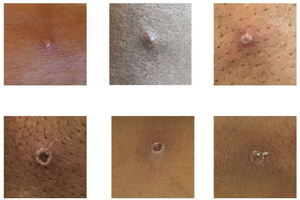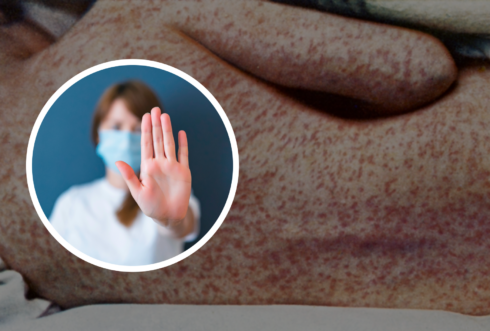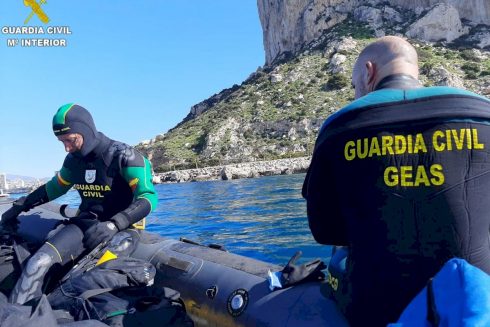GLOBAL health officials have sounded the alarm over rising cases in Europe and elsewhere of monkeypox, a type of viral infection more common to west and central Africa.
The first cases in Europe were detected in the UK with Spain now accounting for more cases than anywhere else, although cases have now been identified across Europe, the US, Canada, Israel, and Australia.
Where are the cases in Spain?
So far health authorities have confirmed 34 cases of monkeypox within the Madrid region, with 38 suspected cases currently under investigation. These are primarily linked to an outbreak at a Madrid gay sauna.

Six cases are currently being studied in the Canary Islands with four confirmed in men who attended a Mampalomas pride party held in the Gran Canaria.
Another 50 possible cases in seven regions across Spain are being studied in the Basque Country, Andalucia, Castilla-La Mancha, Extremadura, Galicia, Valencia and Aragon.
What is monkeypox?
Monkeypox is described as a rare viral infection most common in remote parts of central and west Africa. The disease, first found in monkeys, does not tend to spread easily between people but can be transmitted through close physical contact, including sexual intercourse.

How does it spread?
Although the recent outbreak has affected men mostly involved in sexual relations with other men, it is not defined as a ‘sexually transmitted virus’ and is in no way limited to gay men.
“It’s more that here the close contact during sexual or intimate activity, including prolonged skin-to-skin contact, may be the key factor during transmission,” explained Dr Michael Head, a senior research fellow in global health at the University of Southampton.
What are the symptoms?
Initial symptoms include fever, headaches, swellings, back pain and aching muscles.
Once the fever breaks a rash can develop, often beginning on the face, then spreading to other parts of the body, most commonly the palms of the hands and soles of the feet.

The rash, which can be extremely itchy or painful, changes and goes through different stages before finally forming a scab, which later falls off. The lesions can cause scarring.
The infection usually clears up on its own and lasts between 14 and 21 days and rarely proves fatal.
Should we be worried?
Fernando Simon, Spain’s Chief Epidemiologist who rose to prominence with daily briefings during the coronavirus pandemic issued a message of ‘calm’ while insisting that authorities were proceeding with ‘caution’.
News of the outbreak should not spark ‘ a feeling of excessive anguish’ he said adding that those who have been vaccinated against smallpox should have a level of protection.
READ ALSO:
- First monkeypox case detected in Spain’s Valencia region
- Spain’s monkeypox cases linked to outbreak in gay sauna
- Monkeypox: Eight suspected cases detected in Madrid sparks nationwide health alert in Spain
Click here to read more Must Read News from The Olive Press.








